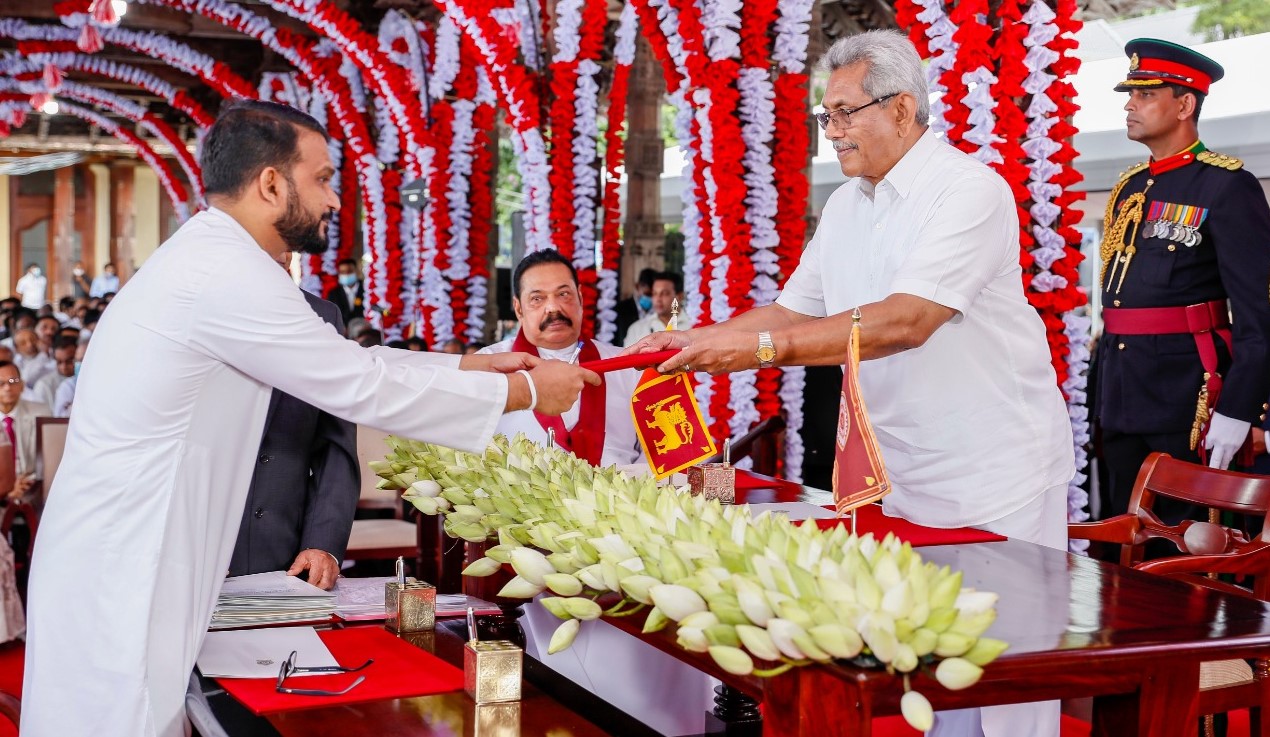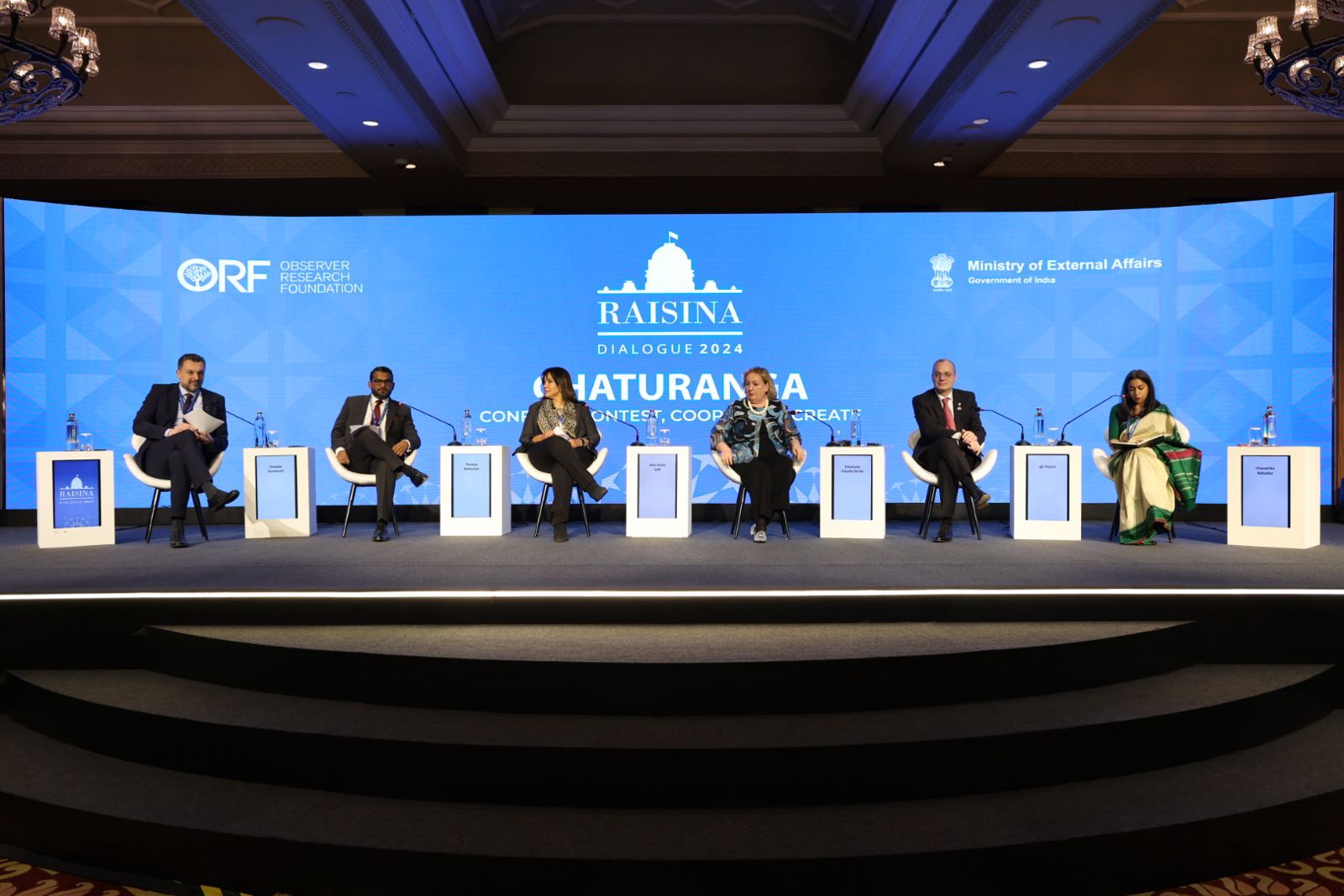Sri Lanka’s state minister for foreign affairs admitted that “majoritarianism in Sri Lanka led to discrimination of certain communities which led them to take up arms,” and called for power sharing – even as his government continues to refuse to do so.
Speaking at the Raisina Dialogue forum in New Delhi, State Minister for Foreign Affairs Tharaka Balasuriya, told the audience “although we believe in democracy, we have to be wary of majoritarianism, which took place in the 1970s”.
“It discriminated against certain communities and led them to take up arms. Development then cannot be limited to certain sections of society. We need to share political power.”
“If we do not share political power, the politicians will always use that trump card of majoritarianism and appeal to only certain communities and sections. I think this needs to be addressed and to have sustainable development.”
‘Power devolution, inclusive development vital for Sri Lanka’s sustainable development’ pic.twitter.com/1A5cUydF26
— Ada Derana (@adaderana) February 24, 2024
Balasuriya is a lawmaker with the Sri Lankan Freedom Party (SLFP), a Sinhala political party that has a long history of anti-Tamil racism and Sinhala nationalism. He also served as the State Minister for Regional Co-operation from 12 August 2020 to 9 May 2022, under accused war criminal and ardent Sinhala nationalist then-president Gotabaya Rajapaksa.

Balasuriya with Gotabaya Rajapaksa, as he takes up his former posting.
The Sri Lankan minister when on to speak about his country’s defence budget when boomed under the Rajapaksa regime, and continues to this day, with Sri Lankan being one of the most militarised places in the world.
“Our defence expenditure in 1985 was USD 188 million but by the end of the war in 2008 this expenditure rose to USD 1. 5 billion,” Balasuriya claimed. “In the 80s and early 90s, when compared with other South Asian nations, Sri Lanka’s social development index was higher than those countries. Within this policy and fiscal space, what we could have spent on development went to the military instead.”
The talk of power devolution specifically on the 13th Amendment is not new on Indian soil by Sri Lankan politicians. India has purportedly been pressing Sri Lanka to implement the 13th Amendment which was brought in after the 1987 Indo-Sri Lankan agreement, for decades, but neither New Delhi or Colombo have made any serious steps to devolve power to the Tamil North-East.
India’s Foreign Minister also attended the Raisina Dialogue 2024 forum, which was organized by India’s Ministry of External Affairs and the Observer Research Foundation in New Delhi.
We need your support
Sri Lanka is one of the most dangerous places in the world to be a journalist. Tamil journalists are particularly at threat, with at least 41 media workers known to have been killed by the Sri Lankan state or its paramilitaries during and after the armed conflict.
Despite the risks, our team on the ground remain committed to providing detailed and accurate reporting of developments in the Tamil homeland, across the island and around the world, as well as providing expert analysis and insight from the Tamil point of view
We need your support in keeping our journalism going. Support our work today.
For more ways to donate visit https://donate.tamilguardian.com.


